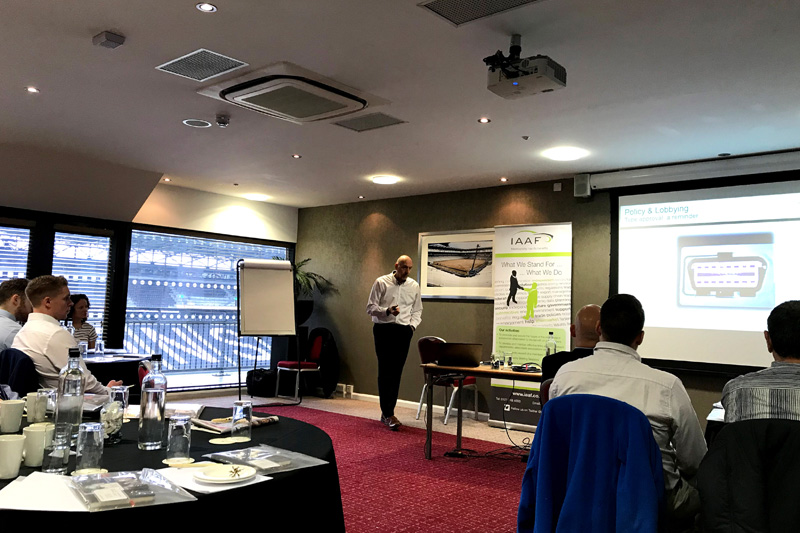
The Independent Automotive Aftermarket Federation (IAAF) recently hosted its first Industry Briefing Session of the year, at Stadium MK. The purpose of the briefing sessions is to keep the IAAF’s members abreast of the latest issues affecting the aftermarket at all levels of the supply chain. PMM reports from the briefing.
Opening proceedings was Gavin White, Autotech Recruit’s Managing Director. Emphasising the difficulty of staff retention currently facing garages, Gavin highlighted that it’s important to understand that technicians want progression and training, especially with the constant evolution within the automotive industry. Promoting the services of Autotech Recruit, Gavin discussed the advantages of utilising the company’s offering, bringing skilled technicians back into the sector, filling empty ramps, and upskilling the workforce.
Also presenting was Ben Stockton, Managing Director at Our Virtual Academy. Ben addressed a series of problems facing the automotive industry when it comes to training, including the skills shortage and the growing complexity of vehicle systems, which means that an increasing number of workshops are unable to “keep up”. Ben explained how difficult it is for garages to spare the time and resource to attend external training, which is why Our Virtual Academy focuses on learning on demand, in bitesize segments. Is this the future of automotive training?
Quentin Le Hetet, General Manager of GiPA, then gave an interesting presentation on the future of the independent aftermarket. Discussing the shape of the UK car parc, Quentin seemed positive about its growth, noting that the UK has the youngest car parc in Europe. He also prophesised a change in the role of technicians, with new car services emulating the ‘Boris bike’ model, where fewer cars are owned, and more are either leased or used for one off journeys.
In response to the change in technology in the aftermarket, Quentin claimed that by 2025, 65% of passenger car new registration will consist of hybrid/electric vehicles. However, he sees this as an opportunity for garages. In regard to the fall in diesel registrations between 2014 and 2018, he sees it as “a bit too early to bury diesel”, warning technicians that ageing diesel vehicles will still also require more servicing as time progresses.









